***Just a quick note to tell you about the fabulous Bake Sale For Haiti that is going on today! My X’s and G’los Valentine’s Day Variety Pack is up for auction (including the new S’moooooooooooore bar!!) in addition to a TON of other delicious looking goodies!*** :mrgreen:
~~~~~~
Hey guys!
Sorry about my disappearance today. I have been going through some personal stuff and had to attend to that in addition to my work.
But alas, I am here as soon as I could be, and I have quite an interesting topic I would like to discuss!
You may or may not be aware that I am a huge Dr. Oz fan. I saw his very first appearance on Oprah and I was immediately a fan. I own almost all of his books and I just love his balanced approach to health. Each week I check his website and see what shows I want to see and then I set the VHS to tape it. (Yes, I said VHS…remember those? No PVR here. We don’t have cable!) :oops:
I taped today’s episode because I love the topic. It was on common everyday foods that may be poisoning us. I was intrigued to find out what Dr. Oz had to say!
Dr. Oz said there are three main poisons in our food:
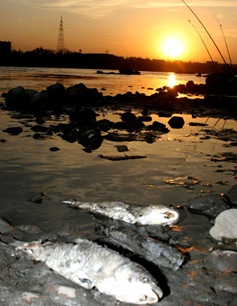 1) Mercury
1) Mercury
90% of all mercury in our blood is derived from eating fish. High levels of mercury have been shown to attack the brain and nervous system. ‘Fish Fog’ is a term used to describe a person with mercury poisoning; symptoms often include foggy and unclear thinking, difficulty concentrating, etc.
While most fish contain some mercury, the fish with the highest level of mercury is the sushi-grade tuna, according to Dr. Oz. He advised against eating tuna often. Interestingly enough, Dr Oz’s study found that Albacore tuna (which is an expensive type of tuna) actually had higher mercury levels than regular chunk light tuna (the cheap stuff!). I found this quite shocking! When I used to eat fish, I always tried to buy Albacore because I thought it was safer. Not true, says Dr. Oz. Albacore tuna is higher in mercury because it is a bigger and older fish. As a general rule of thumb, bigger and older fish will have higher levels of mercury in them. Fish with high levels of mercury include: Sushi, tuna, and tilefish, among others.
Dr. Oz recommends selecting small and young types of fish like herring, sardines, and even salmon as safer choices for lower mercury levels.
There was a time in university when I used to live off of tuna. I’m not even joking. Canned chunk light tuna was cheap and I ate a can everyday. :cry: Maybe my exam scores would have been higher had I not?? ;)
2) Pesticides
On virtually all non-organic fruit and vegetables, pesticides can be found. In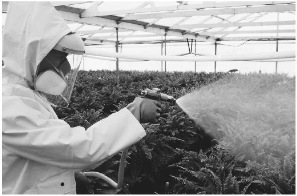 some human and animal research, pesticides are thought to increase the risk of ADHD, autism, and obesity.
some human and animal research, pesticides are thought to increase the risk of ADHD, autism, and obesity.
Now don’t stop eating your fruits and veggies, instead become a wise consumer of what you select.
Obviously organic produce is expensive, so that is why we can find out what fruits and vegetables are at the lowest risk for pesticides and try to purchase those whenever possible. I tend to follow the Dirty Dozen (and clean fifteen) rules of thumb whenever possible.
If you can only purchase one fruit that is organic, they suggest buying organic apples. Why? Because people tend to eat a lot of apples and it is on the dirty dozen list.
If you can only purchase one organic vegetable than purchase organic potatoes. I didn’t know this, but potatoes are one of the worst vegetables for pesticides, so much so that the pesticides seep through the skin into the actual potato. For some reason I thought that potatoes would have a thick skin and be resistant to pesticides, but that doesn’t seem to be the case. I would like to add that two vegetables I always buy organic are spinach and kale, as they are near the top of the list and I eat them very frequently (For organic spinach that is about half the price- go to Costo! I just discovered this myself.) Low-risk vegetables like cucumbers, onions, cabbage, eggplant, asparagus, and broccoli, I do not buy organic in an effort to save money.
3) Bisphenol A (BPA)
 Ninety-three percent of adults have some amount of BPA in their blood. BPA is a building block found in many plastics and linings of cans. BPA is thought to increase the risk of infertility, cancer, diabetes, and obesity (however this is widely debated).
Ninety-three percent of adults have some amount of BPA in their blood. BPA is a building block found in many plastics and linings of cans. BPA is thought to increase the risk of infertility, cancer, diabetes, and obesity (however this is widely debated).
How can we protect ourselves against BPA?
- Check the number on the bottom of the plastic. Number 7 (hard clear plastic) contains BPA. Number 3 (PVC) and Number 6 (Polystyrene) are also known to leach chemicals.
- Buy fresh food whenever possible
- If you can’t buy fresh food, buy frozen food instead of cans
- Select glass containers as opposed to cans
- Do not freeze or microwave plastic
So there you have it, three poisons in our everyday foods, according to Dr. Oz.
Personally, I think it is a shame that we have to worry about our food so much in this day and age. Everything just seemed so much more simple a 100 years ago! It is quite sad when I think about the state that our food system is in. For the most part, the food industry is all about cranking out the most amount of food for the lowest amount of cost. In turn, our food has become compromised in a huge, huge way. Pesticides, GMO’s, and other chemicals are the norm.
I feel like everywhere we turn, there is a new study out there saying that this food is bad to eat or this chemical is in our food. When will it end? And most importantly, will there ever be a day in our future when we can feel confident in the food that we put in our bodies? Or will the system continue to get worse?
I try not to get bogged down too much about BPA or other such things because I think that it is impossible to avoid it entirely. I also think it is still too early to really know what effect these things are having on our bodies. For now I just try to make sensible choices when I can and not let myself lose sleep over it. If I listened to all the reports, there wouldn’t be anything left to eat!
What are your thoughts on the 3 above mentioned ‘poisons’? Do you avoid any of them :?:
Time to catch some zzzzzz’s. Been a long day. Nighty night, don’t let the bed bugs bite.

There are no seasons in the American supermarket. Now there are tomatoes all year round, grown halfway around the world, picked when it was green, and ripened with ethylene gas. Although it looks like a tomato, it’s kind of a notional tomato. I mean, it’s the idea of a tomato. ~Michael Pollan

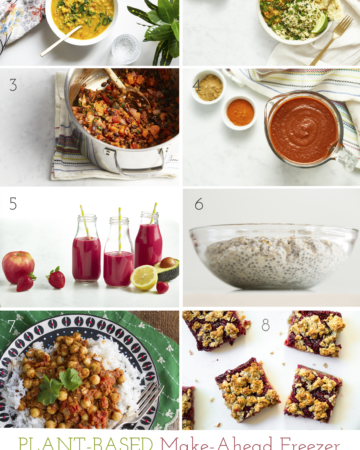
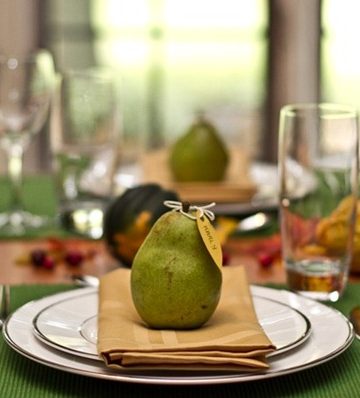
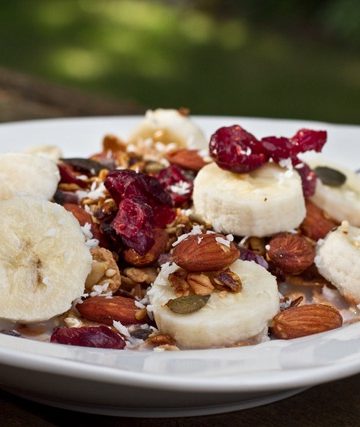
Wow. Great post…and so informative!!!
The bad stuff in fish was just one of the reasons that pushed me to become vegetarian…and now vegan. Never looking back. I wonder, though, do sea vegetables (nori, dulse, kelp, etc.) have the same harmful mercury content?
As for organic, pesticides and that stuff: I buy organic produce as much as possible, only making exceptions for the stuff that I don’t eat the skin on (avocados, onions, bananas, oranges) but if the price is at all similar I will go for organic any day!
The BPA thing really kind of freaks me out. After hearing that, I stopped buying canned tomato products but I still consume canned stuff every so often (beans and fruit most frequently). I still use a lot of plastic to store stuff in, however I try not to microwave in plastic. I also switched to a metal water bottle. I want to start using more glass to store leftovers and frozen goods in, though. I did not know that about freezing things in plastic being bad.
I agree that all this information can be, well, TMI!!! It’s kind of a slippery slope, and difficult sometimes to avoid become obsessive and paranoid about such things. I think that as long as we try to be aware and conscious consumers, eat as close to the source as possible, choose organic when available, and clean our produce well everything will be okay. And if it’s not? Well, we all have to go sometime! Haha. Seriously, though, worry can be toxic and extremely harmful to the body too! So I think it pays to lighten up sometimes.
I came across this interesting article:
http://kimberlysnyder.net/2010/01/14/home-town-farms-the-vertical-organic-urban%E2%80%A6and-better-way-to-farm/
If this is true, the future of food may be a lot less scary than we think!
Hello,
I love your blog to bits. I am an environmentalist and truly find it sad that companies would put such chemicals into our foods despite knowing the health risks. I’m trying to buy a blender for my dorm room and however much I would love to buy a glass blender, they all seem to break easily and there is always the chance of chipping. How do you deal with a plastic blender and knowing the harm it might do you? I find it hard not to get caught up in the paranoia and anxiety.
Thanks,
Alex